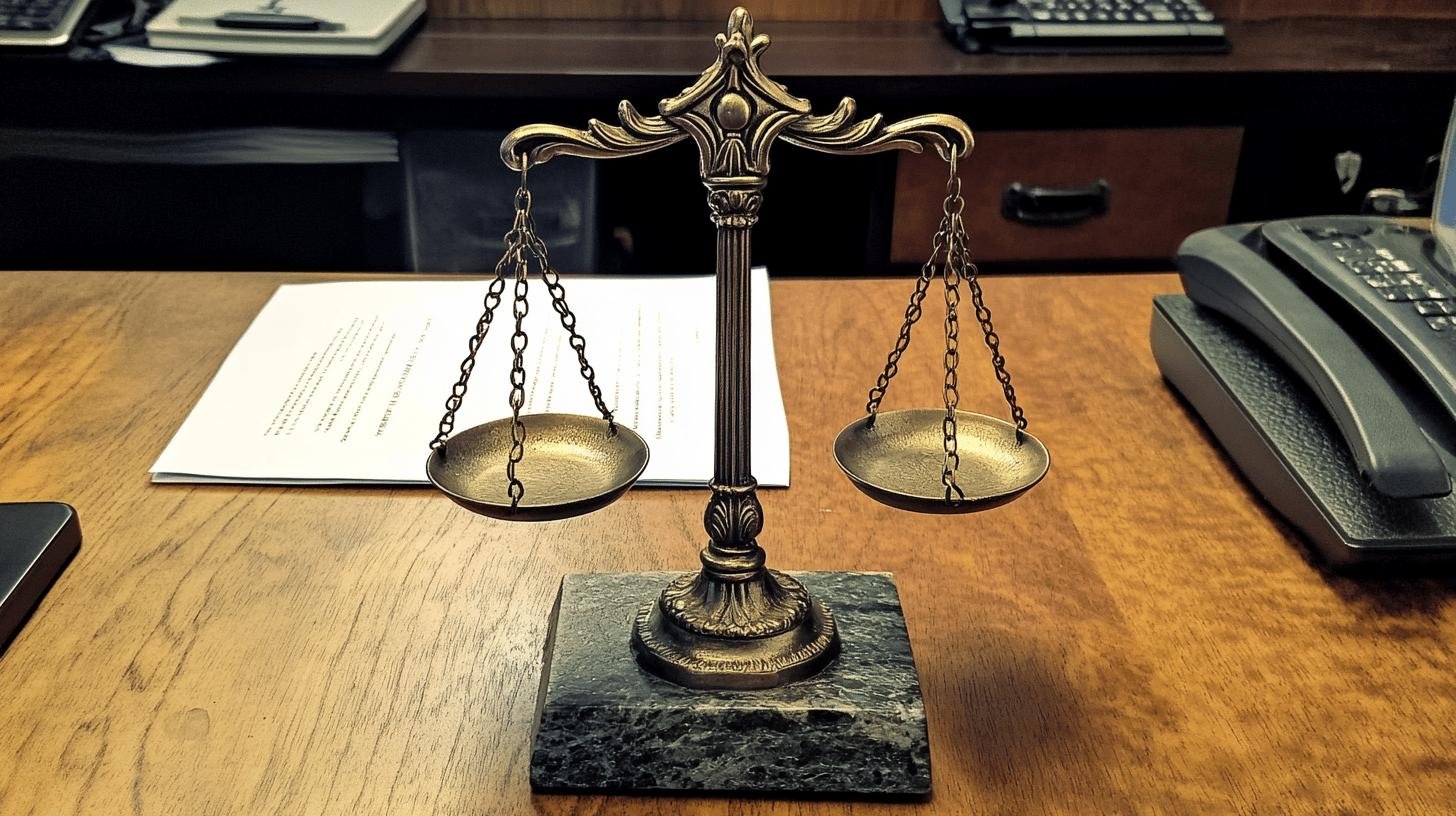TL;DR:
- U.S. Constitution protects economic freedom through key clauses:
- Contracts Clause: Protects contract rights, prevents state interference.
- Takings Clause: Ensures fair compensation for property seizures.
- Privileges and Immunities Clause: Promotes economic equality among states.
- Due Process Clauses: Safeguards life, liberty, property; extends economic rights.
- Commerce Clause: Allows Congress to regulate interstate commerce.
- Landmark cases:
- Lochner v. New York (1905) emphasized minimal state interference.
- West Coast Hotel Co. v. Parrish (1937) signaled acceptance of more regulation.
- Current debates center on balancing government intervention with individual freedoms in labor rights, property rights, and regulatory practices.
Is the Constitution a shield for economic freedom, or has its interpretation reshaped those liberties over time? Embedded in the U.S. Constitution are key provisions that aim to protect what many believe is a fundamental right: economic liberty.
From the Contracts Clause to the Due Process Clauses, these principles were designed by the founding fathers to support a government of limited power, ensuring freedom for individuals’ economic pursuits.
This blog post delves into these constitutional foundations, examining how they were intended to guide our economic laws and how they’ve evolved through history to impact today’s legal landscape.
Constitutional Foundations of Economic Liberty
The U.S. Constitution protects economic freedom through several key clauses. Firstly, the Contracts Clause stops states from making laws that impair contract rights. The Fifth Amendment’s Takings Clause ensures private property isn’t taken for public use without fair payment. Meanwhile, the Privileges and Immunities Clause bars states from discriminating against citizens of other states, promoting economic equality.
The Due Process Clauses in the Fifth and Fourteenth Amendments guard against unfair denial of life, liberty, or property, extending these protections to economic rights. Lastly, the Commerce Clause lets Congress regulate trade across state and national borders, influencing economic governance.
These provisions show the Founding Fathers’ aim to support economic freedom. They believed in minimal government interference, vital for a free market. Influenced by Enlightenment ideas, they structured the Constitution to balance federal powers and individual liberties, ensuring governmental actions don’t hinder economic pursuits.
| Clause | Purpose | Impact on Economic Liberty |
|---|---|---|
| Contracts Clause | Protect contract rights | Prevents state interference in contracts |
| Takings Clause | Ensure compensation for property | Guards against unjust property seizure |
| Privileges and Immunities Clause | Prevent state discrimination | Promotes economic equality among states |
| Due Process Clauses | Protect life, liberty, property | Extends economic rights protection |
| Commerce Clause | Regulate interstate commerce | Governs economic activity regulation |
These constitutional clauses aimed to limit government interference in individuals’ economic affairs. The framers wanted a system where personal freedom and property rights were prioritized, allowing economic activities to flourish. This vision has shaped America’s legal and economic landscape, balancing government oversight and economic freedom.
Evolution of Economic Liberty in Constitutional Law

Early interpretations of economic liberty in constitutional law include decisions like Lochner v. New York in 1905. The case rejected a state law limiting bakers’ work hours, arguing it infringed on the right to freely contract, a core element of economic liberty. The decision highlighted protecting individual economic rights over state regulation, reflecting minimal interference in business.
During the New Deal era, cases like West Coast Hotel Co. v. Parrish in 1937 marked a shift. This decision upheld a state minimum wage law, supporting economic regulations protecting workers. It signaled acceptance of more government intervention, balancing individual rights and social welfare.
- Lochner v. New York (1905)
- West Coast Hotel Co. v. Parrish (1937)
- Schechter Poultry Corp. v. United States (1935)
- NLRB v. Jones & Laughlin Steel Corp. (1937)
- Wickard v. Filburn (1942)
These precedents deeply influence modern views on economic freedom. Courts now often balance individual rights and state interests in regulating the economy. This balance reflects debates on government power scope and economic liberties, guiding policies between personal freedoms and societal needs.
The Commerce Clause and Economic Regulation
The Commerce Clause is vital, giving Congress the power to manage commerce with foreign nations, between states, and with Indian tribes. How does this empower Congress? It grants a legal framework for federal intervention in economic activities. The clause ensures trade and economic interactions are nationally managed, preventing states from adopting policies that hinder free trade.
Centralizing commerce regulation creates a unified market, key for stability and growth. This regulatory power has shaped federal policies, addressing issues beyond state borders like labor standards and environmental rules. While the clause allows for economic regulation, it often sparks debates on federal reach versus state rights.
- Labor laws
- Environmental regulations
- Consumer protection standards
- Interstate transportation rules
Due Process and Economic Rights

The Due Process Clause in the Fifth and Fourteenth Amendments safeguards economic rights. How does it work? By protecting against unfair denial of life, liberty, or property, it covers economic activities, ensuring rights aren’t compromised. Historically, it was key in legal arguments against unjust government interference in personal and business matters. This illustrates the Constitution’s commitment to balancing state power and individual freedoms in economic interests.
Today, the Due Process Clause influences discussions on economic liberties. How is it applied now? It serves as a foundation for court decisions assessing fairness and legality of economic regulations. It ensures governmental actions affecting economic rights undergo judicial scrutiny, preventing unjust interventions. The clause’s role highlights its importance in protecting individual economic freedoms, shaping a legal landscape respecting personal rights.
Current Implications and Policy Debates
Economic liberty is crucial in shaping policy on labor rights, regulations, and property rights. How does it impact them? It ensures businesses operate with minimal interference, fostering innovation and competition. In labor rights, it backs freedom to contract, letting workers and employers negotiate terms freely. Regulations are scrutinized to avoid barriers stifling entrepreneurship, and property rights thrive under economic liberty, promoting investment and growth.
What are the debates on government intervention versus individual freedom? They center on how much government should regulate economic activities without restricting freedoms. Supporters of intervention see regulations as necessary for addressing issues like inequality and safety. Critics argue excessive regulation limits liberties and efficiency, favoring a free market approach.
- Minimum wage laws
- Environmental regulations
- Healthcare mandates
- Zoning and land use policies
- Consumer protection laws
- Trade agreements
Economic liberty in the U.S. highlights the tension between personal freedoms and equitable growth. How does this tension appear? It emerges in policy debates balancing rights and societal benefits. Finding this balance is key to fostering a society valuing both opportunity and fairness, ensuring regulations serve the public good while preserving economic freedom principles.
Final Words
Exploring economic liberty in the Constitution reveals a mix of foundational principles and historical shifts. From the Contracts Clause to the Due Process Clauses, the American legal system aims to protect economic freedom.
The evolution through landmark cases like Lochner v. New York and West Coast Hotel Co. v. Parrish marks significant changes in interpretation. The Commerce Clause plays a pivotal role in shaping economic policies today, influencing how federal intervention is framed.
Amid ongoing policy debates, these elements underscore the enduring importance of economic liberty across centuries. Its roots in the Constitution continue to impact American society positively.
FAQ
What is meant by economic liberty?
Economic liberty means the freedom to choose how to produce, sell, and use one’s resources. It’s the basis for individual choice and market competition, protected by several constitutional provisions.
Where in the Constitution is economic liberty protected?
The Constitution protects economic liberty through clauses like the Contracts Clause, Takings Clause, Privileges and Immunities Clause, and the Due Process Clauses found in the Fifth and Fourteenth Amendments.
Why is economic liberty important?
Economic liberty is crucial because it supports personal freedom and market competition. It lets individuals make economic choices and limits government control over private business decisions.
How does the government limit business freedom?
The government limits business freedom to balance economic liberty with public welfare. Regulations ensure fair practices, protect consumers, and maintain market stability.
What does the Constitution say about economic power?
The Constitution allocates economic power primarily through the Commerce Clause, allowing Congress to regulate interstate and international trade. This balances national economic interests.
What protections does the Sixth Amendment provide?
The Sixth Amendment provides protections for fair trials, including the right to a speedy trial, impartial jury, and legal representation, ensuring justice in legal proceedings.
What role do individuals play in the American economy?
People contribute to the economy as consumers, workers, and entrepreneurs. They drive demand, supply labor, and create businesses, fueling economic growth and innovation.
How does Article II protect the political rights of the President?
Article II outlines the President’s powers and responsibilities, ensuring executive authority is separate from legislative and judicial powers, preserving the President’s role in government.

